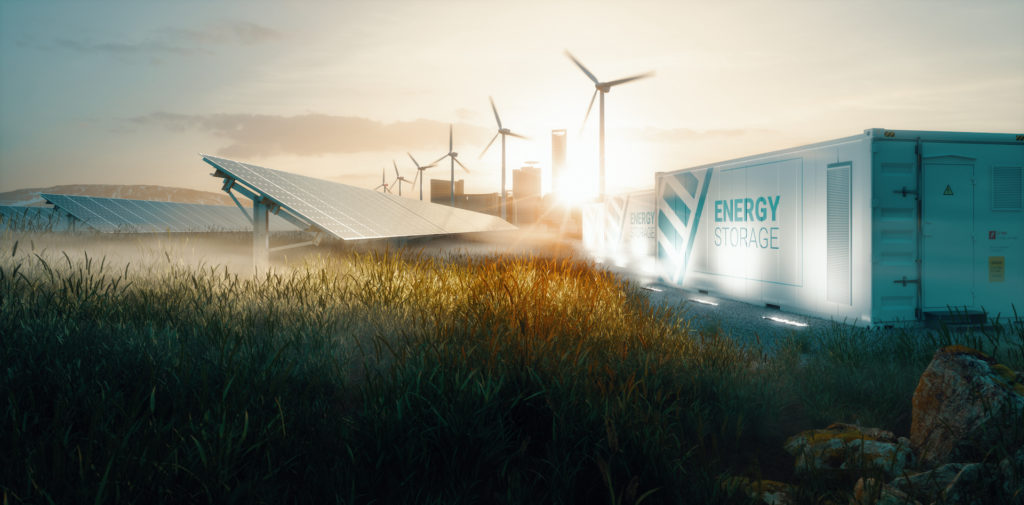Ahmad Atwan is used to the looks of shock when he tells people his venture capital fund, VC Fuel, is both based in Houston and focused on lower-carbon energy.
Since launching his fund here in 2020, it has dispersed about $20 million of capital into four companies, and it has plans to bring on two more budding businesses in the coming months. However, few of those companies, and the companies he has explored investing in, have launched along Texas’ Gulf Coast.
“It makes absolutely no sense because Houston is the world capital of energy,” Atwan said. “You’d think we would be able to build more.”
Despite the recent growth of Houston’s innovation district and the hope of local leaders that the city will keep and attract new energy technology companies, funding for new low-carbon technologies remains on the East and West coasts. More money has flowed to Houston to help bring some of these projects to scale in recent months, but the difficulty of raising capital for new renewable energy companies remains a hurdle to creating those businesses here.
Houston ranked fifth in venture capital investments for clean energy technologies from 2011 to 2016, according to the Brookings Institute, but the amount of money invested here was dwarfed by the amounts amassed in California and the Boston area. In San Francisco and Silicon Valley, for example, VCs spent more than $13 billion on clean energy startups, while Houston-based companies received about $1.9 billion. Austin-based clean energy companies raised a little more than $1 billion in that time.
That’s been changing recently as the energy transition picks up steam in Houston, but financing groups here are more risk averse than those in the San Francisco Bay area, said Ed Hirs, a University of Houston energy fellow. Most of the groups here, he said, are more willing to bet on a proven technology than an unproven one with promise.
“The uncertainty is just big, and for the traditional energy financing groups — the oil and gas and electric financing groups — if they can’t wrap their arms around a project, they won’t finance it,” Hirs said.
Instead, Hirs said, most are more willing to bet on already established technology such as wind, solar and battery power. Others with untested or unproven technologies typically have a harder time raising the capital they need to get off the ground.
Take Cemvita Factory, which was started in Houston in 2017. Brother and sister founders Tara and Moji Karimi, along with some scientists from the Texas Medical Center and the oil and gas sector, found a way to genetically engineer microbes to use carbon dioxide as a feedstock to create chemicals used in heavy industry, such as ethylene and methanol. They knew they had a great product, but it was initially difficult to get the investments they needed from Houston VCs, Moji Karimi said.
“In terms of fundraising, we were kind of boot-strapped for a year, year and a half,” he said. “The Houston VC ecosystem has evolved since then, which is great. But it’s still a few steps behind where the startups are.”
Ultimately, Cemvita Factory secured seed funding from Oxy Low Carbon Ventures, a subsidiary of Occidental Petroleum, and BHP. And in April, Oxy Low Carbon Ventures announced that it would build a pilot plant using Cemvita Factory’s technology to produce bioethylene.
While most of the oil and gas majors have launched funds to invest in newer, low-carbon technologies, those funding subsidiaries don’t always offer what venture capital firms do, said Neal Dikeman, a partner with Houston-based Energy Transition Ventures.
“Corporate venture is not really VC. That’s one of the challenges,” Dikeman said. “It provides the basic capital, but it doesn’t really build companies.”
VCs, he said, are able to offer more expertise to help guide new companies through growth, later rounds of fundraising, recruitment and connecting with customers. The oil and gas ventures do come with built-in customers, but Dikeman said they’re more likely to absorb new energy tech companies rather than help them expand.
Dikeman’s family has been in Texas since the 1830s and in Houston for three generations. He and his founding partner, Craig Lawrence, spent time in Silicon Valley but decided to launch Energy Transition Ventures here last year. Locating here was more a factor of chance than strategy, but having VCs and startups based in Houston makes sense, he said. It’s easier for new companies to scale here, in the energy capital of the world. But starting them up here is more difficult, and even starting renewable energy venture companies here is more difficult because so few exist.
“If you don’t have this herd of other VCs, it can get painful,” Dikeman said. “We have to shop nationwide for startups. If we have one great startup from Houston, I’ll be ecstatic. If we have one move to Houston, I’ll be ecstatic.”
Atwan, with VC Fuel, has already accomplished that. One of his first startups, a hydrogen company founded in Toronto, is moving its headquarters to Houston, and another startup he hopes to fund in the coming weeks got its start here. However, he said, he’s also had to shop nationwide for startups because the startup environment here is just now growing. His hope is that more will come out of incubators like the new Greentown Labs climate tech incubator, which opened in April, and that it will be able to attract more VCs to the area.
Still, he and Dikeman say Houston is behind. Dikeman said the region should have been launching startup incubators and starting venture firms a decade ago and that more money should have been flowing into renewables from the start.
“We have more cash than God — we have enough to fund the entire energy transition,” Dikeman said. “But it’s flowed heavily into other asset classes.”
Read more on: Houston still a tough sell for renewable energy funding (houstonchronicle.com)



